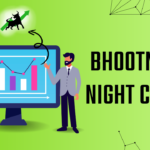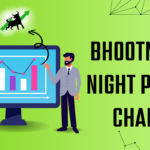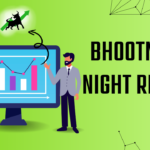Enterprise Resource Planning (ERP) systems have become the backbone of modern business operations. These comprehensive software platforms integrate various business processes, from accounting to human resources, into a single system, enabling organizations to streamline their operations, improve efficiency, and make data-driven decisions. As technology continues to evolve at a rapid pace, so too does the ERP landscape. In this article, we’ll explore the future of ERP systems, highlighting key trends that are poised to shape the industry in the coming years. For more in-depth insights, you can visit this link: https://noticviralweb.blogspot.com/2024/04/erp.html.
The Evolution of ERP Systems
ERP systems have come a long way since their inception. Initially, these systems were simple tools designed to manage basic accounting functions. However, as businesses grew more complex, so did the need for more sophisticated solutions. Today’s ERP systems are comprehensive business management tools that integrate various functions across an organization, including finance, supply chain, customer relationship management (CRM), and more.
For those interested in the historical development and evolution of ERP systems, additional resources can be found at https://noticviralweb.blogspot.com/2024/04/erp.html.
Cloud-Based ERP
The rise of cloud-based ERP systems is one of the most transformative trends in the industry. Cloud ERP solutions allow businesses to access their ERP systems from anywhere with an internet connection, making it easier for companies to manage their operations remotely. This is particularly important in today’s increasingly mobile and globalized business environment.
For more details on cloud-based ERP and its benefits, you can refer to https://noticviralweb.blogspot.com/2024/04/erp.html.
Advantages of Cloud ERP
Cloud ERP offers several advantages over traditional on-premise systems. First, it reduces the need for costly hardware and IT infrastructure, as the software is hosted and maintained by the vendor. This makes it an attractive option for small and medium-sized enterprises (SMEs) that may not have the resources to invest in on-premise solutions.
Additionally, cloud ERP systems are highly scalable, allowing businesses to easily add or remove users and modules as their needs change. This flexibility is crucial in a fast-paced business environment where companies must quickly adapt to new challenges and opportunities.
To delve deeper into the advantages of cloud ERP, check out https://noticviralweb.blogspot.com/2024/04/erp.html.
Also Check:Bhootnath Day Night Satta Matka
AI and Machine Learning in ERP
Artificial Intelligence (AI) and Machine Learning (ML) are rapidly transforming the ERP landscape. These technologies have the potential to revolutionize the way businesses use ERP systems by automating routine tasks, providing deeper insights through predictive analytics, and enhancing the overall user experience.
For more information on how AI and ML are integrated into ERP systems, you might find this resource helpful: https://noticviralweb.blogspot.com/2024/04/erp.html.
The Rise of Mobile ERP
As mobile devices become increasingly integral to our daily lives, the demand for mobile ERP solutions is on the rise. Mobile ERP apps allow employees to access critical business information and perform tasks from their smartphones or tablets, making it easier to work on the go.
For a comprehensive guide on the rise of mobile ERP, visit https://noticviralweb.blogspot.com/2024/04/erp.html.
ERP and the Internet of Things (IoT)
The Internet of Things (IoT) is another trend that is set to have a significant impact on the future of ERP systems. By connecting physical devices such as sensors, machines, and vehicles to the ERP system, businesses can collect real-time data that can be used to optimize operations, reduce costs, and improve decision-making.
You can learn more about IoT’s role in ERP at https://noticviralweb.blogspot.com/2024/04/erp.html.
The Role of Big Data in ERP
As businesses generate and collect more data than ever before, the ability to manage and analyze this data has become a critical factor in success. ERP systems are increasingly being equipped with big data capabilities, allowing companies to process and analyze large volumes of data in real-time.
For further reading on big data and its integration into ERP systems, check https://noticviralweb.blogspot.com/2024/04/erp.html.
ERP Customization and Flexibility
As businesses become more diverse and complex, the demand for highly customizable ERP solutions is growing. Companies want ERP systems that can be tailored to their specific needs, rather than being forced to adapt to a one-size-fits-all solution.
For a detailed discussion on ERP customization and flexibility, visit https://noticviralweb.blogspot.com/2024/04/erp.html.
ERP for Small and Medium-Sized Enterprises (SMEs)
Historically, ERP systems were primarily used by large enterprises with the resources to implement and maintain these complex systems. However, in recent years, there has been a significant increase in the adoption of ERP solutions among small and medium-sized enterprises (SMEs).
For insights on how SMEs can leverage ERP systems, refer to https://noticviralweb.blogspot.com/2024/04/erp.html.
Conclusion
The future of ERP is bright, with numerous exciting trends set to shape the industry in the coming years. From the rise of cloud-based solutions and the integration of AI and IoT to the growing importance of user experience and the potential of blockchain, ERP systems are evolving to meet the needs of modern businesses. As technology continues to advance, businesses that embrace these trends will be well-positioned to thrive in an increasingly digital world. For more information on the future of ERP, visit https://noticviralweb.blogspot.com/2024/04/erp.html.
FAQs
What is the biggest challenge in implementing an ERP system?
The biggest challenge in implementing an ERP system is often change management. Ensuring that employees are adequately trained and that the new system is seamlessly integrated into existing processes can be difficult, especially in large organizations. For more insights, check https://noticviralweb.blogspot.com/2024/04/erp.html.
How does AI impact ERP systems?
AI enhances ERP systems by automating routine tasks, providing predictive analytics, and personalizing the user experience, leading to more efficient and informed decision-making. You can learn more at https://noticviralweb.blogspot.com/2024/04/erp.html.
Why are cloud-based ERPs gaining popularity?
Cloud-based ERPs are gaining popularity due to their flexibility, scalability, and cost-effectiveness, making them accessible to businesses of all sizes and allowing for easier remote access. More details can be found here: https://noticviralweb.blogspot.com/2024/04/erp.html.
What is the role of IoT in ERP systems?
IoT plays a crucial role in ERP systems by enabling real-time data collection from connected devices, which can be used to optimize operations, reduce costs, and improve decision-making. For more information, visit https://noticviralweb.blogspot.com/2024/04/erp.html.
How can small businesses benefit from ERP?
Small businesses can benefit from ERP by streamlining their operations, improving efficiency, and gaining access to data-driven insights that can help them grow and compete more effectively. Additional details are available at https://noticviralweb.blogspot.com/2024/04/erp.html.














